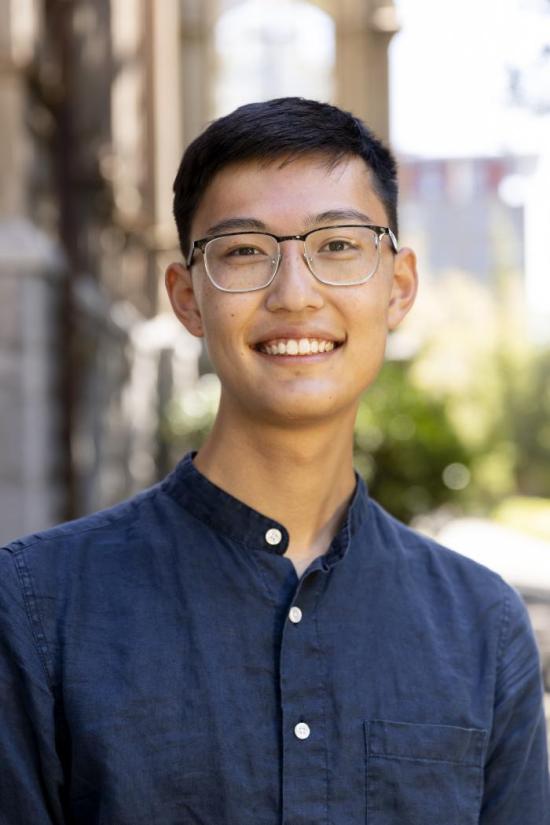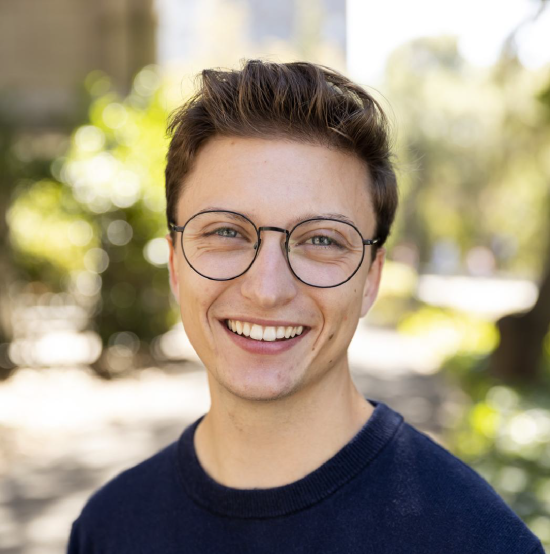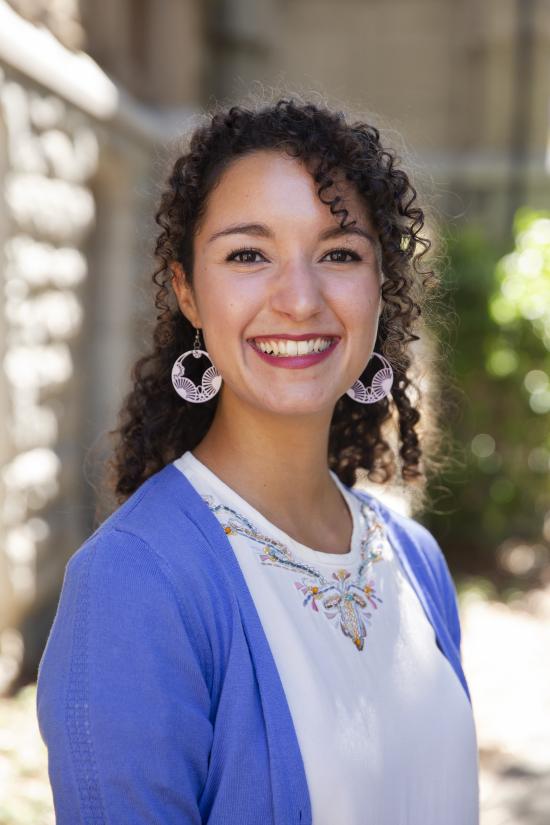Three UC Berkeley School of Information Ph.D. students — Naitian Zhou, Chase Stokes, and Lauren Chambers — were awarded the highly prestigious Graduate Research Fellowship Program (GRFP) award by the National Science Foundation (NSF). Stokes and Chambers are second-year Ph.D. students, and Zhou is a first-year.
The NSF GRFP recognizes and supports outstanding graduate students in NSF-supported science, technology, engineering, and mathematics disciplines. NSF Fellows are anticipated to become knowledge experts who can contribute significantly to research, teaching, and innovations in STEM.
Zhou, Stokes, and Chambers were among the 2,555 total award recipients this year, from over 12,000 applicants. 89 winners and 15 of the 825 honorable mentions were from UC Berkeley.
In his research, Naitian Zhou, who is advised by David Bamman, focuses on what he describes as “applying computational methods to studying style, identity, and culture.” Pulling from various disciplines such as sociolinguistics, social psychology, linguistic anthropology, and more, Zhou is interested in using natural language processing to understand and measure the extent in which a person feels a sense of belonging within a community. By analyzing both social media — such as Yelp reviews and Reddit memes — and film, he seeks to decode whether the way people speak or post online can be used as evidence of their sense of belonging. “By constructing a measure of belongingness, we can study what makes certain communities more inclusive than others,” Zhou stated.
Zhou’s research stemmed from his experience immigrating to the U.S. at a young age. “In the process of learning to ‘fit in’,” he explained, “I learned that proficiency in a language involves not only knowing the vocabulary, but also knowing how people take turns in conversation, adjust to varying styles of formality, and even make cultural references…I used to think academic research was inaccessible and esoteric, but I've come to realize that it's a way for me to ask questions about the world that come from a deeply personal place. I'm very fortunate that the NSF GRF allows me to dedicate more of my time to asking (and trying to answer) these questions.”
Chase Stokes’s research journey began during his sophomore year of college when he participated in a panel discussion on medical care for transgender youth. During a particularly poignant slide about transgender youth suicide rates, the presenter included a simple bar chart that highlighted the difference in suicide rates of transgender youth with support and those without. Stokes was struck by the effect the graph had on the audience. “This moment showed me the power of not only visualization but information overall, and it inspires me to continue to pursue science — none of those realizations would have happened had we not had both the data and the language,” he said.
Since then, Stokes, who is advised by Marti Hearst, has focused on exploring the intersection of language and visualization, aiming to improve the way researchers communicate visual information about data by providing a clearer understanding of how readers incorporate text elements of charts in tandem with the visualized information. “I’m thrilled about this award in two parts,” he commented, “First, it’s a privilege to be paid to pursue a passion (especially a very specific one). Second, I’m excited that other researchers and scientists recognize the importance and value of these questions. It goes to show how much the scientific community is invested in improving our own practices when it comes to communication. It encourages the idea that just because we have the tools and skills to make complex visualizations does not mean the work ends there. We also have to adapt to how a real audience receives that information.”
Lauren Chambers, who is advised by Deirdre Mulligan, primarily focuses on socio-political advocacy and specifically how those advocates engage with, respond to, and inform technology and algorithms. “My interest in the intersection of technology and social problems originated in college when I double-majored in astrophysics and African American studies,” Lauren explained. “This specific project, and my Ph.D. research focus broadly, is directly inspired by the amazing advocates I had the pleasure of working with and witnessing while I was at the ACLU. Their work is so critical to preserving our liberties and protecting us from the harms of new technologies, yet it often goes unrecognized and undetected by the general population – and, relatedly, understudied by researchers.”
Her NSF-funded research centers around the role of Black leaders and Black schools of thought on advocacy against algorithmic injustices. “I hope to expose both the integrality of Black communities to the fight against harmful algorithms and the fundamental grounding of such socio-political movements in Black theory, thought, and traditions.” Chambers said.
Chambers has also received the Ford Foundation Predoctoral Fellowship this year and is the first and only I School Ph.D. candidate to receive this fellowship.
Head of School and Professor Marti Hearst congratulated the awardees. “The NSF GRF is an honor bestowed on the most promising Ph.D. students in the nation,” she said. “This recognition of three of our Ph.D. students shows externally what we already know internally: that interdisciplinary research can be academically outstanding. Congratulations to these students.”
Founded in 1951, the NSF GRFP is the oldest graduate fellowship of its kind. GRFP recipients often make life-long significant contributions to scientific innovation and learning. Since 1952, NSF has funded over 60,000 Graduate Research Fellowships out of more than 500,000 applicants. Currently, 42 Fellows have gone on to become Nobel laureates, and more than 450 have become members of the National Academy of Sciences.
Fellowships provide the student with a three-year annual stipend of $37,000 along with a $12,000 cost of education allowance for tuition and fees, as well as access to opportunities for professional development available to NSF-supported graduate students.
UC Berkeley Graduate Division offers an NSF Graduate Research Fellowship application workshop each fall where students can learn about and get help with the application process.












